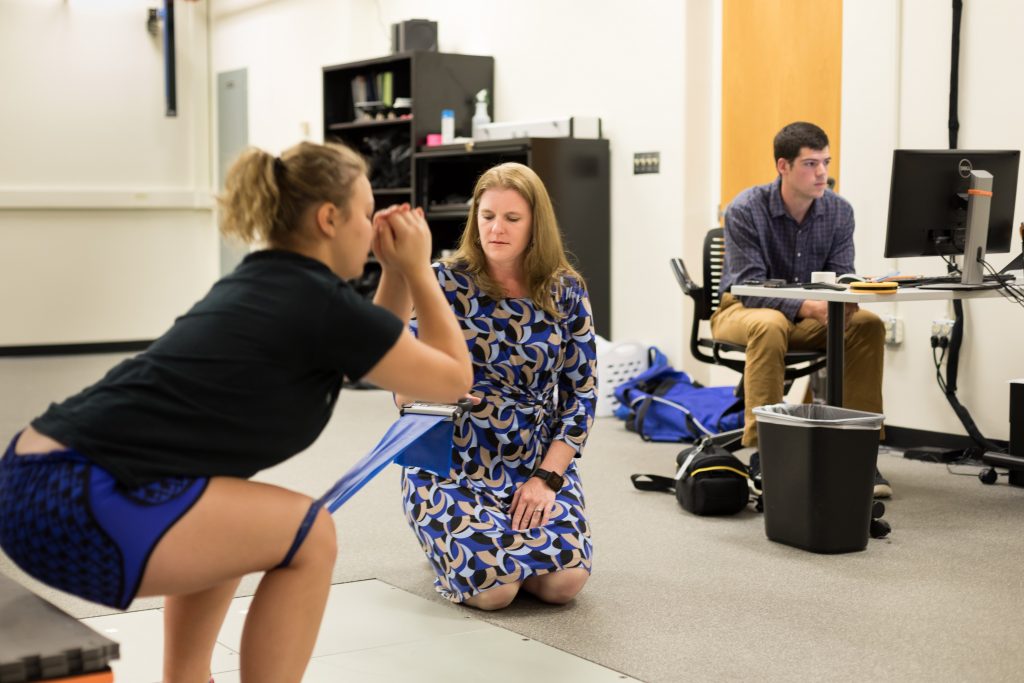ACL injuries are common among athletes and due to residual muscle weakness, limited knee motion and asymmetrical movement patterns after surgery many of these athletes will sustain secondary ACL injuries following return to sports. This project seeks to determine if a novel biofeedback-based rehabilitation approach can decrease a known risk factor for secondary injuries to the ACL. The project specifically focuses on correcting asymmetric movement patterns, a known risk factor for secondary injury that is not directly addressed by existing interventions through a 6 week therapy based biofeedback intervention.
Reduction of Risk Factors for ACL Re-injuries using an Innovative Biofeedback Approach

